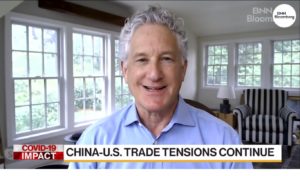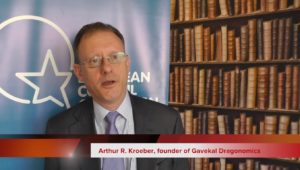
China limited its GDP growth for 2023 to a modest 5 percent at the opening of the National People’s Congress this weekend. Political analyst Victor Shih explains the background of this lower-than-expected ambition in the Guardian.
The Guardian:
[Premier] Li [Keqiang] began the speech saying Covid-19 and other domestic and international factors had affected the country’s economy “beyond our expectations”.
He announced the government would aim to create about 12m urban jobs, but left room to move with unemployment rates – keeping the urban target at 5.5%, which it was most recently reported as being in December.
Prof Victor Shih at the University of California, San Diego, told the Guardian the targets were “not overly ambitious”, and allowed the government and its incoming new premier a potential “easy victory”.
“They don’t call for any massive stimulus, and that partly stems from a recognition that exports – a main engine of growth for China’s economy in the last three years – will likely not be so strong this coming year,” he said.
The speech also pledged to resolve housing issues for young people, improve welfare provisions to elderly people and “improve the birth support system”. In recent weeks, the CCP has unveiled a number of policies that aim to reverse the declining birthrate by encouraging people to have more children.
Shih said welfare increases and stimulating consumption – another focus of Li’s speech – would require sizeable government funding.
“So a lot of this wording sounds to me like an empty promise in a sense, because it’s unclear where the money would come from unless growth miraculously comes in way beyond expectations.”
Victor Shih is a speaker at the China Speakers Bureau. Do you need him at your meeting or conference? Do get in touch or fill in our speakers’ request form.
Are you looking for more political analysts at the China Speakers Bureau? Do check out this list.












